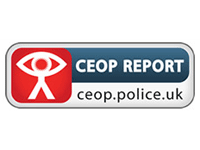
“I’ve always thought this, I’m not changing now”
In our school, someone who has a ‘closed’ character may behave in ways that many of us find uncomfortable. BUT let’s look at ourselves, do WE behave like this sometimes to certain groups of people and think that we are right and they are wrong?
Research can help us understand why we may behave in unpleasant ways to people who we perceive as being different to us. Most of us are brought up with a set of beliefs and values and, throughout our lives, tend to surround ourselves with people who share the same values and beliefs. ‘Cultural cognition theory’ suggests that we shape our opinions to conform to the views of the groups with these groups, known as the ‘us’ groups. This create solidarity in the group, therefore increasing the chances that our group’s views will prevail in society and so our survival chances increase, and it also strengthens the group’s acceptance of us as members in good standing. However, it also becomes more difficult to demonstrate an ‘open’ character to the people who don’t share our views, we don’t like, can’t relate to and aren’t in our ‘us’ group. They are consequently classified as the ‘them’ group.
It is also widely accepted that the more threatened we feel, the more we close our mind to other possibilities and opinions in order keep the tribe together and ourselves safe.
Finally, research proposes that being an expert can make you more closed-minded in your thinking. A study found that people who perceive themselves to be experts tend to be less open minded to new ideas and alternative viewpoints. The scientists behind the study call this the ‘earned dogmatism effect’ because we have a tendency to think in a more dogmatic, or closed-minded, way when we consider ourselves to be an expert.
If we have closed characters, cracks start to appear in our schools and communities. We have seen this throughout time and throughout the world. People can become judgmental, unkind or quick to blame others without fully trying to understand alternative view points. However, students need to know that having a more ‘open’ character does not mean you have to agree with everybody. Instead being willing to listen to others should allow you to have a balanced and educated opinion.
Having an ‘open’ character DOES NOT mean you have to agree with everything someone else does, says or thinks. It DOES mean you can listen, consider, think, reflect and review without shouting someone else down or refusing to listen.
We each have a responsibility to live our lives with kindness, respect and without harm. How ‘open’ a character we are, determines whether we are able to fulfil our potential to make the world a better place.
Essentially, it is easier to have an open character towards people who you know well, like or even love – people who are part of your ‘us’ group, because you want to understand them, you try to always give the benefit of the doubt. It is harder to show an open character to people not like you – people who are in the ‘them’ group, because you naturally find it harder to relate to them, understand them, don’t have the same views or life experience.
The challenge is therefore for us to see each person as equal and as a result display an ‘open’ character to all we come across, EVEN IF they are different to you.
Will we allow our mind to ‘see’ others this week – their views, their lives?
“The eye sees only what the mind is prepared to comprehend” ~ Henri Bergson


